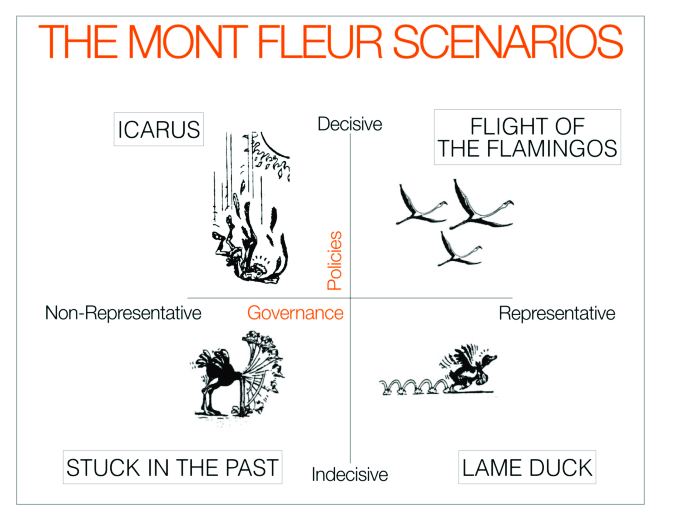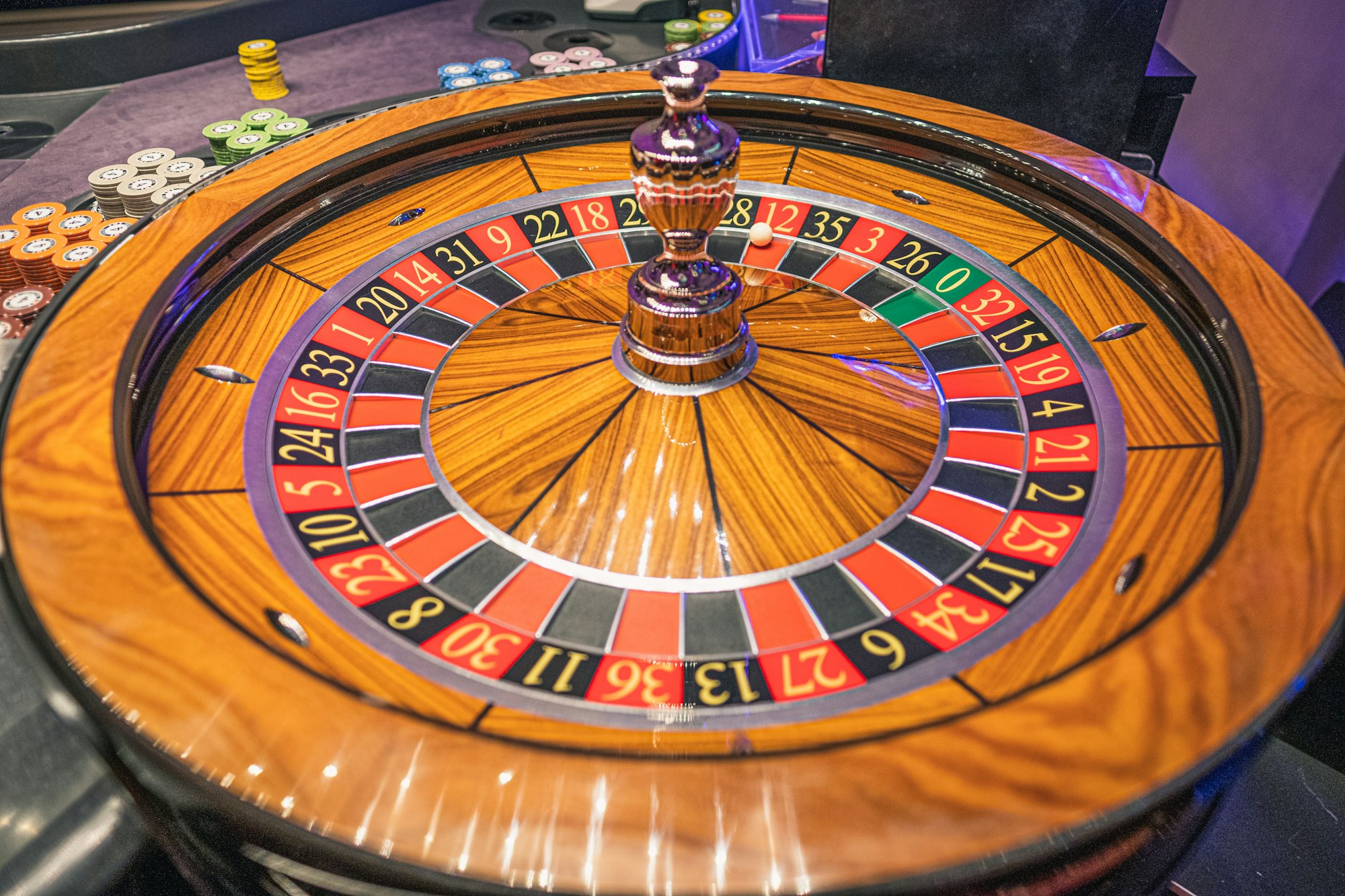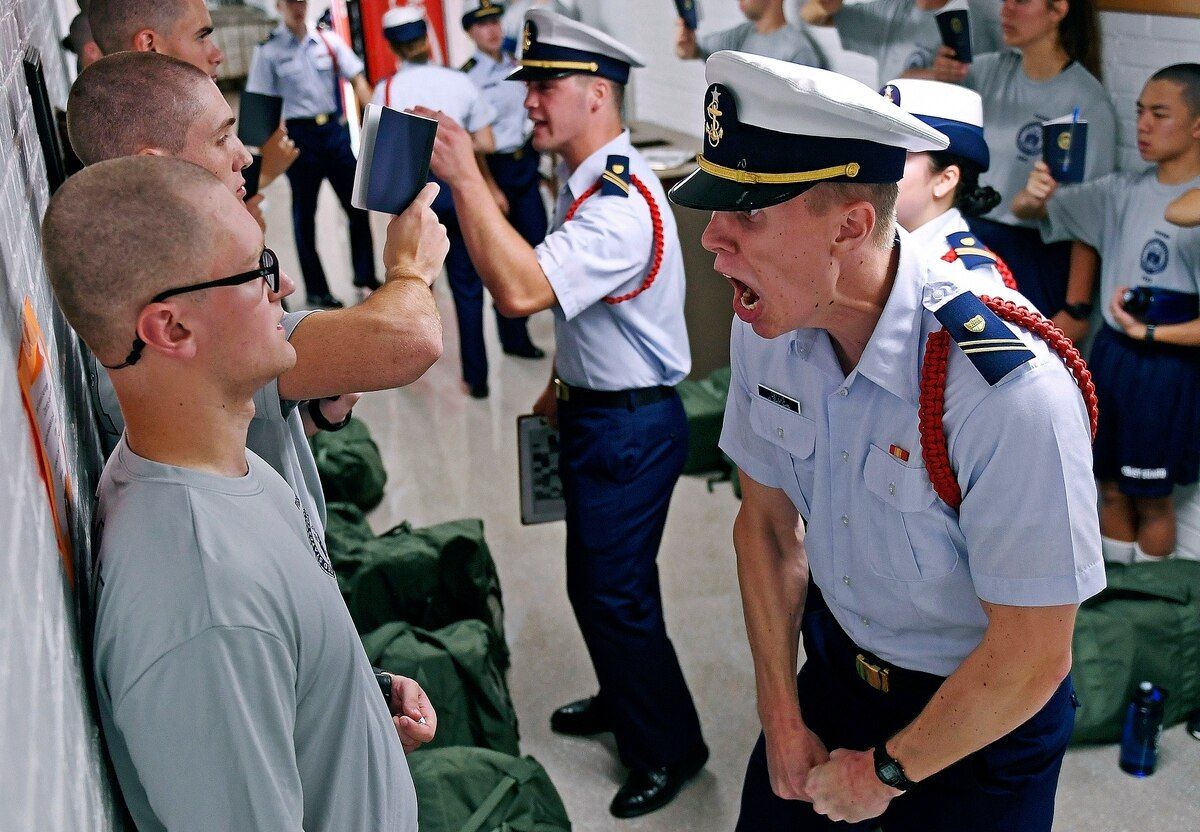Scenario planning: The art of exploring your options
In a competitive environment where contenders are trying to gain the upper hand; scenario planing is like an unfair secret weapon.
At the start of the Cold War in the 1950s - the United States was confronted with a new, major problem.
Key military decisions, that literally had the power to seal the fate of the planet, needed to be made with very little factual information on hand.
The threat of nuclear war with the Soviet Union was imminent and the technology driving its proliferation was brand new - there was no readily-available strategic data that could be logically used and analysed.
Under these radical conditions of uncertainty a US-government think tank, called the RAND Corporation, suggested the use of a framework useful in situations of high uncertainty, which its main advocate, a man by the name of Herman Kahn, called scenario planning.
Why is scenario planning so useful?
The major plus of scenario planning, as apposed to trying to make a defined 'prediction of the future' through a technique like forecasting - is that scenario planning doesn't try to suggest that there is just one possible future that could play out.

When all-out nuclear war is a real consequence of getting that forecasted, single-future prediction wrong (the odds of which are statistically obviously very high), it is far more useful for military leaders to logically explore a few possible future scenarios that plausibly could unfold, and then to develop counter strategies in response.
What scenario planning does very effectively is to open up the mind of the strategist to explore multiple-futures and options. It is a great technique for exploring solutions to problems that other methods of thinking would not be able to uncover.
When confronted with the nerve-wracking challenge of making key decisions during times of heightened levels of uncertainty as to what the future holds - scenario planning literally claws back a level of agency and mental optimism that otherwise would have been lost by viewing the future as somehow fixed.
In a competitive environment where contenders are trying to gain the upper hand; scenario planing is like an unfair secret weapon.
Since the 1950s, scenario planning has been used extensively by corporations like Royal Dutch Shell, Pepsi, Apple - and it was even relied on to bring together the divergent thinking of political parties with radically different ideologies in South Africa, where the various futures of the country were explored just after the end of Apartheid in 1992.

The Mont Fleur scenarios are widely regarded as a key reason as to why the negotiated settlement in post-Apartheid South Africa was so successful.
The value of scenario planning for business?
It is very easy to get lulled into a false sense of security by assuming that 'business as usual' is a given.
Under conditions of rapid change and uncertainty, this default mental condition can be extremely limiting for an organisation at best; and catastrophic at worst.
What scenario planning offers is the opportunity to temporarily suspend the allure of the present moment and creatively explore alternative future states.
It frees the minds of participants to think about alternative future realities that are available, as well as the routes towards each one of those futures; so that better decisions can be made in the present, and people are more likely to collaboratively work effectively together as a team to achieve their collective goals.
Where does the 'art' bit fit into scenario planning?
Good scenario planning, is not about simply detailing, in descriptive narratives, what you already think you know.
The quality of the group's thinking that powers the exploration of the selected unknowns is the primary determinate of how good and useful the resulting scenarios are.
A lot of mundane analysis these days gets wrongly labelled as scenario planning, which doesn't in any way carry the transformational potential of a well-constructed set of creative scenarios.
Much of this needed quality comes down the capabilities of the facilitator responsible for delivering the work. The facilitator's ability to guide the group towards fresh thinking is pivotal.
The role of the facilitator is to create a safe space where people can feel free to think of and share radical ideas and concepts. This kind of 'space creating' comes down to a number of intangible elements (charisma, non-judgment, humility) as well as the experience, knowledge and creative techniques of the person leading the workshops.
Good scenario planning facilitators are few and far between, so be sure to choose the one that leads your workshop wisely.
Empower your organisation for the future
Strategically explore the multiple futures of your organisation or team - with a unique, professionally facilitated one-day scenario planning workshop hosted by Jonathan Cherry.
Contact us to enquireResearch has shown that future-orientated organisations that use strategy techniques like this are are more agile, more profitable and sustainable than those that choose to not focus their efforts on long-term opportunities.
Given the choice - great leaders who guide others during times of uncertainty - have consistently turned to scenario planning to gain a valuable perspective that wouldn't ordinarily have been available without it.
In our experience, as a facilitator of scenario planning, it certainly is a valuable practice to adopt to improve your agency and command of the futures.
Previously:





